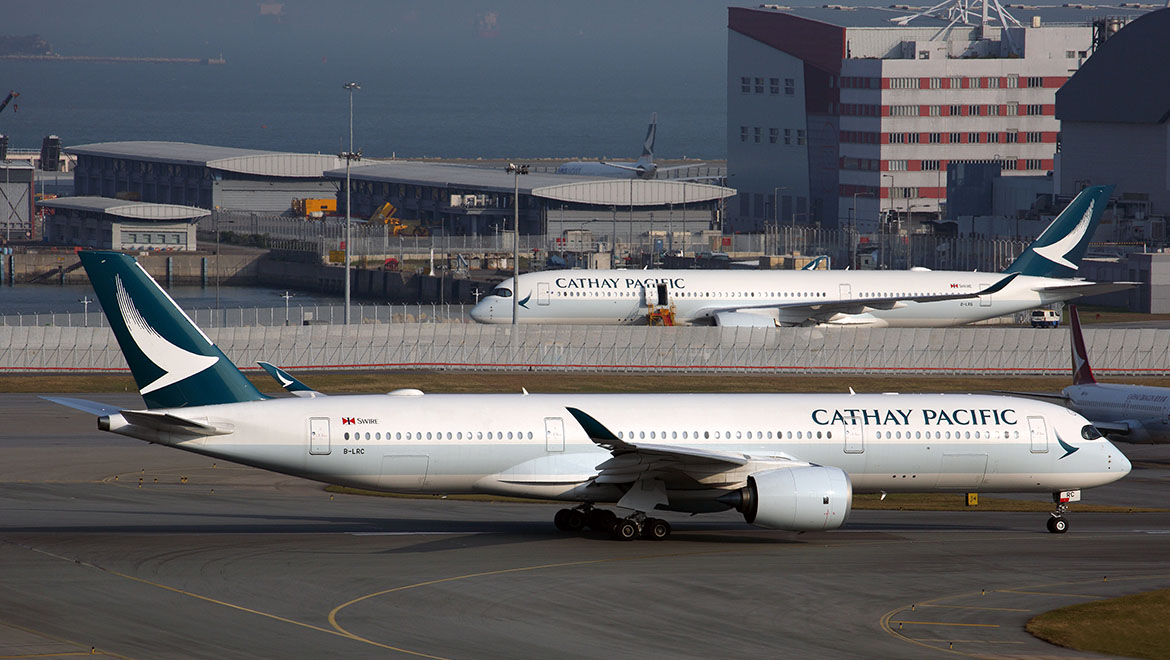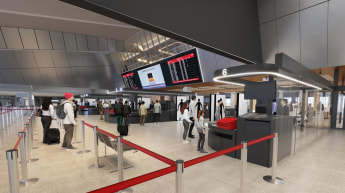
Cathay Pacific says a proposed codeshare agreement with Qantas would encourage more tourists to visit Australia and benefit the national economy.
In a submission to Australia’s International Air Services Commission (IASC), Cathay Pacific head of regulatory affairs Patrick Garrett has called for a further review and reversal of a draft decision to reject the proposed codeshare with Qantas.
“We are disappointed at the draft decision, because it limits our ability to enhance our product offering which would have been a benefit to customers in Australia and around the world,” Garrett said in a letter published on the IASC website.
“The decision would prevent a product enhancement for Australians resident in your country, but also those living and working abroad and travelling home, and overseas passengers and businesses seeking to visit Australia for commercial or leisure purposes.
“Making more codeshare services to Australia available via our sales channels increases the likelihood of tourists choosing to make such trips, thereby benefiting Australia.”
The application sought approval for Cathay Pacific to add its CX airline code on 35 Qantas-operated return flights a week from Brisbane, Melbourne and Sydney to Hong Kong.
The codeshare flights would only be sold as part of a through journey involving connections either beyond Hong Kong on Cathay Pacific or its regional wing Cathay Dragon to destinations in India, Sri Lanka and Vietnam, among other countries, or to other Australian domestic destinations from Brisbane, Melbourne and Sydney on Qantas.
The IASC, which manages Australia’s traffic rights, said in the draft decision published on May 24 the proposed codeshare was likely to “entrench and expand the market position” of the two airlines to the detriment of Virgin Australia’s competitive position and the position of any potential future entrants on the route.
Qantas, which recently stated it would appeal the decision, had argued in its submissions to the IASC the codeshare agreement was a pro-competitive move designed to offer passengers more choice on a greater number of city pairs and would have no adverse impact on the competitive dynamics on point-to-point routes between Australia and Hong Kong.
However, the IASC disagreed, saying in its draft decision the proposed codeshare was likely to lead to a market structure which made it more difficult for Virgin Australia to compete, as well as raise the barriers for new entrants on the route.
Garrett questioned the suggestion in the IASC draft ruling there was limited competition from third country airlines offering one-stop itineraries between Australia and Hong Kong because the longer trip times made them a less attractive proposition.
“Today airlines are competing against many more other carriers than was the case in years past,” Garrett said.
“Virgin Australia has maintained significant codeshare/partnerships with both Singapore Airlines, and the mainland-China HNA Group.
“Australian passengers do therefore have abundant choice on non-Qantas routes to Hong Kong, or destinations beyond Hong Kong.”
Although the proposed codeshare was only for connecting itineraries, draft ruling said it was likely to strengthen the position of Cathy Pacific and Qantas in the Australia-Hong Kong market.
Garrett said “accepted airline economics should provide some comfort” to the IASC’s concerns.
“Direct traffic capacity will always enjoy higher priority in terms of capacity allocation vs connecting traffic,” Garrett said.
“We hope that the points raised here will be considered by the Commission, and that given the public benefits which the arrangement can deliver, we would respectfully request a further review and reversal of this Draft Decision.”
















Scott
says:No brainer here, simply reject it – combined 90% of a market no one should need an codeshare period.
MARK
says:Wrong. As a traveller it would be a great benefit to me for my one world status and qf ff. It would give me a lot more flexibility for travel to Europe.
reeves35
says:As a Oneworld traveller you can already do this. You are just buying a ticket that includes 2 airline codes. You get full interline of luggage etc. The need for this scheme does not increase the benefit to you and is more designed to pressure out competition on the AU-HKG routes.
Scott
says:You might get some frequent flyer points BUT if approved and they force Virgin off the route (which will happen look at history and the behaviour of these airlines – “every one extra flight they add we will add 2” – ACCC???) once that happens their market share climbs from 90% to 100% and you airfafe WILL climb 30%. and your points no longer look that pleasing.
Patrickk
says:This is to third countries like India for which VA has existing code shares through Singapore and qantas does not. Not sure how it disadvantages them.
Stephen Smith
says:So obvious.It’s to push Virgin Australia off the route and stifle competition.Virgin has good load factors and Cathay and qantas are jealous of losing market share.